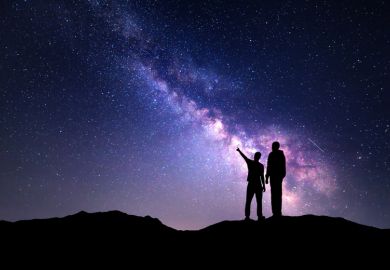Hurrah! I have a new book out, all shiny, hard and solid in the hand. It is a collaboration with 34 other people: the product of three enjoyable but hard years of work. Reviewers will have their opinions, but I know it’s a sound project that adds to the field.
OK, so shut up now? No. Impact agenda, Helen. Get it out there. But how? Get it in the papers, of course. So I need to ask those delightfully pleasant and curious journalists, who often call me for basic lessons in the area this book discusses, to write about my work? But they don’t know why it is important. Nor do they care. Indeed, they have already ignored the press release about the book with its statements about “groundbreaking research”. It just doesn’t seem to be sexy enough for them.
And this just doesn’t seem to be right. How did these non-research active people end up with the power to determine the public impact of academic work? When did we give them this role as gatekeepers? Getting super busy on social media to compensate is not really on my overloaded workload matrix.
Something in the land of research smells funny: people with expert knowledge are called upon to speak in the media according to media agendas, yet when we want something out there, discussed, debated, considered by taxpayers, we go cap in hand to people who know nothing about the original new knowledge we offer. I question it because it is a system. Three times now I have encountered this system and failed to break through with my groundbreaking offer. “Nah. Not today. Thanks, love.” Impact isn’t working.
So I suggest to academia that it do its own breakthrough of groundbreaking new knowledge. We need a public interface – an institute with a website or something – that holds all these carefully considered and wrought press releases of academic publications so that the general public can go there to see what is being said about the work being released. Media power? We must be able to cut out the middle man and woman of journalism.
While they have a valuable place, and those I’ve met are decent people, good at their profession, they cannot be the gatekeepers of access to any academics’ work as new public knowledge. Whichever way I turn, journalists stand in the way. They block research from entering the public domain should their own knowledge base not be able to get the “angle”. In other words, new knowledge doesn’t emerge because journalists find it incommensurate with their knowledge base: dissonance means they reject and fail to see its value. Unless, of course, it has an angle.
Not all knowledge is about sex, angles or instant gratification of understanding. Some requires reflection over time and engagement of the kind that journalists do not facilitate. I wonder, research community, where is the open gate that our research projects and outputs can walk through to find an interested public audience?
Helen Lees is senior lecturer in education studies at Newman University and co-editor, with Nel Noddings of Stanford University, of The Palgrave International Handbook of Alternative Education (September 2016).
Write for our blog platform
If you are interested in blogging for us, please email chris.parr@tesglobal.com
POSTSCRIPT:
Print headline: Why are the media the gatekeepers of impact?
Register to continue
Why register?
- Registration is free and only takes a moment
- Once registered, you can read 3 articles a month
- Sign up for our newsletter
Subscribe
Or subscribe for unlimited access to:
- Unlimited access to news, views, insights & reviews
- Digital editions
- Digital access to THE’s university and college rankings analysis
Already registered or a current subscriber?







